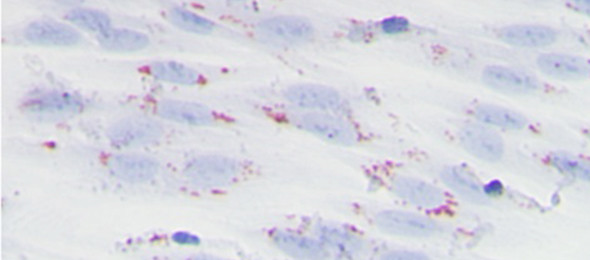Endometrial Stroma Cells
Molecular and metabolic aspects of implantation:
The endometrium is a steroid hormone dependent tissue that responds to cyclical changes in estrogen and progesterone during the menstrual cycle. The proliferative stage of the menstrual cycle is associated with follicular growth and increased estrogen secretion leading to endometrial proliferation. This proliferation ceases after ovulation when progesterone begins to rise. The progesterone dominant luteal phase is characterized by endometrial stromal cell differentiation in preparation for the implanting conceptus, a process called decidualization. Seven to ten days after ovulation as a result of these cellular changes, the human endometrium becomes receptive to embryonic implantation. This period is commonly referred to as the “window of implantation”. Differentiation of the endometrial stromal cells (ESCs) into decidual cells is required for successful embryo implantation and the establishment of pregnancy. This process is characterized by changes in the endometrial cytoskeleton and glucose metabolism, as well as the up-regulation of prolactin, insulin-like growth factors, and IGF binding proteins. Thus, decidualization can be detected by expression of the aforementioned molecules.

Previously, our lab has shown that decidualization in primary human endometrial stromal cells is accompanied by a significant increase in glucose utilization. Protein expression of GLUTl, the ubiquitous facilitative glucose transporter, increased significantly as did glucose uptake. Further studies revealed that glucose utilization via the pentose phosphate pathway was critical for uterine decidualization and that this process was inhibited by elevated levels of dehydroepiandrosterone (DHEA). DHEA is a known noncompetitive inhibitor of glucose 6-phosphate dehydrogenase, independent of any hormone receptor activation. These studies suggested for the first time that decidualization and implantation depend on adequate glucose utilization. Moreover, theses findings established that interruption of decidualization via blockage of the pentose phosphate pathway could represent a novel contraceptive mechanism.